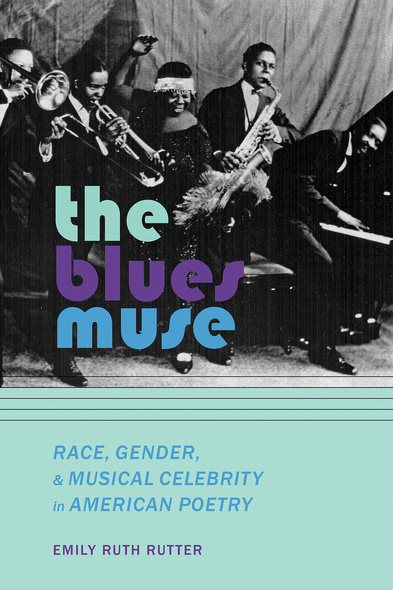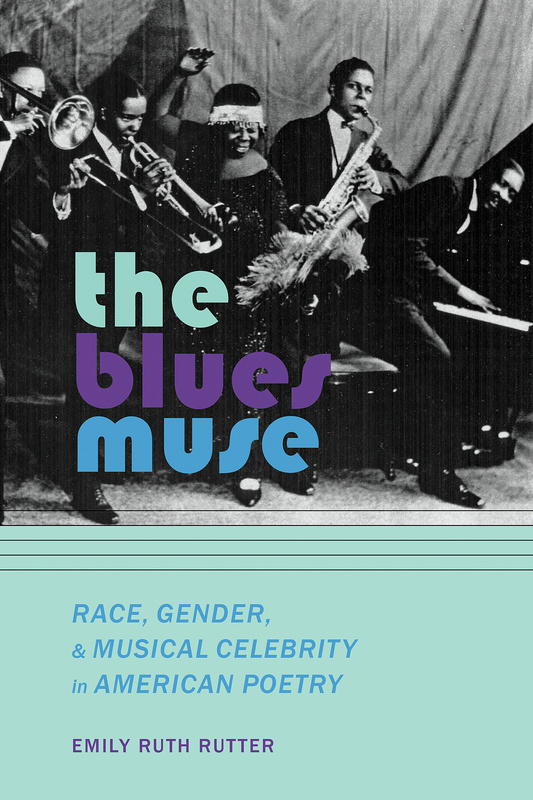Our shopping cart is currently down. To place an order, please contact our distributor, UTP Distribution, directly at utpbooks@utpress.utoronto.ca.
The Blues Muse
Race, Gender, and Musical Celebrity in American Poetry
University of Alabama Press
A critical analysis of the poetic representations and legacies of five landmark blues artists
The Blues Muse: Race, Gender, and Musical Celebrity in American Poetry focuses on five key blues musicians and singers—Gertrude “Ma” Rainey, Bessie Smith, Billie Holiday, Robert Johnson, and Lead Belly—and traces the ways in which these artists and their personas have been invoked and developed throughout American poetry. This study spans nearly one hundred years of literary and musical history, from the New Negro Renaissance to the present.
Emily Ruth Rutter not only examines blues musicians as literary touchstones or poetic devices, but also investigates the relationship between poetic constructions of blues icons and shifting discourses of race and gender. Rutter’s nuanced analysis is clear, compelling, and rich in critical assessments of these writers’ portraits of the musical artists, attending to their strategies and oversights.
The Blues Muse: Race, Gender, and Musical Celebrity in American Poetry focuses on five key blues musicians and singers—Gertrude “Ma” Rainey, Bessie Smith, Billie Holiday, Robert Johnson, and Lead Belly—and traces the ways in which these artists and their personas have been invoked and developed throughout American poetry. This study spans nearly one hundred years of literary and musical history, from the New Negro Renaissance to the present.
Emily Ruth Rutter not only examines blues musicians as literary touchstones or poetic devices, but also investigates the relationship between poetic constructions of blues icons and shifting discourses of race and gender. Rutter’s nuanced analysis is clear, compelling, and rich in critical assessments of these writers’ portraits of the musical artists, attending to their strategies and oversights.
Writing from a feminist, multicultural perspective, Rutter builds on a wealth of literary studies about jazz and poetry, work by the likes of Sascha Feinstein, David Yaffe, and Emily Lordi. . . . Rutter focuses on blues masters and how they have inspired poets, starting in the Harlem Renaissance and continuing through the Black Arts movement into the present day. . . . Though rooted in popular culture, this treatment is complex as it considers gender, race, ‘musical celebrity,’ and the aesthetics of song and poetry.’
—CHOICE
‘The Blues Muse is an impressively informative, exceptionally detailed, scholarly study that spans nearly one hundred years of literary and musical history ranging from the New Negro Renaissance to the present. . . . Rutter’s expert analysis is clear, compelling, and rich in critical assessments of these writers’ portraits of the musical artists, attending to their strategies and oversights.’
—Library Bookwatch, Midwest Book Review
‘An impressively researched and lucidly written analysis of nearly one hundred years of American poetry inspired by Ma Rainey, Bessie Smith, Billie Holiday, Lead Belly, and Robert Johnson—those ‘blues muses’ whose complex lives, art, personae, and historiographies have made them especially rich and persistent subjects for white and black American poets alike.’
—Emily J. Lordi, author of Black Resonance: Iconic Women Singers and African American Literature and Donny Hathaway’s Donny Hathaway Live
The Blues Muse is an interesting and valuable work which will be of particular interest to those teaching American poetry with an emphasis on its connections with African American vernacular musical traditions.’
—Erich Nunn, author of Sounding the Color Line: Music and Race in the Southern Imagination
Emily Ruth Rutter is assistant professor of English at Ball State University. She is the author of Invisible Ball of Dreams: Literary Representations of Baseball behind the Color Line. Her research has been published in African American Review, South Atlantic Review, Studies in American Culture, Aethlon, and MELUS.
Acknowledgments
Introduction: The Blues Muse Tradition
1. “Don’t Like My Ocean, Don’t Fish in My Sea”: Blues Muses, Racial Uplift, and Queer Camaraderie
2. “Never Was a White Man Had the Blues”: Blues Icons and Black Power
3. “I Ain’t Gonna Marry, Ain’t Gonna Settle Down”: Blues Women and Intersectionality
4. “Blues Falling Down Like Hail”: Blues Men and the Second-Wave Blues Revival
5. “It’s Gonna Carry Me through This World”: The Post-Soul Blues Muse
Coda. Repetition with a Difference: Beyoncé Knowles-Carter as Muse
Notes
Bibliography
Index





